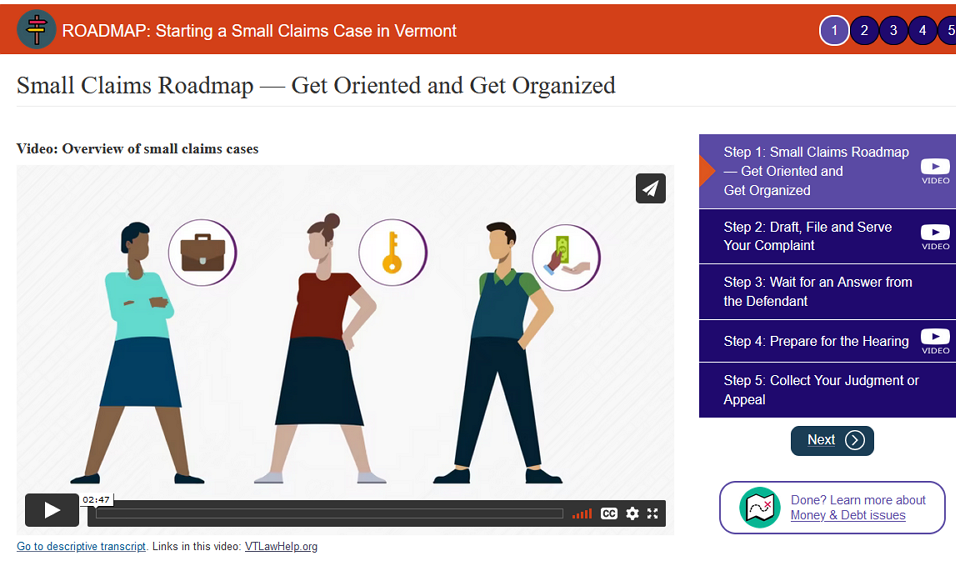Small claims court is where you can recover up to $10,000 that is owed to you.
If you are suing someone, you will file your small claims case in the Civil Division of the Superior Court in the county where you or the other person lives. To “file” means to hand in or send your documents to the court.
If you are sued by someone, you will get a small claims Complaint delivered to you. You will need to respond by filling out an Answer to the Complaint.
Use our Small Claims “Roadmap”
Our Small Claims Roadmap will teach you how to start and complete a case in small claims court in Vermont. Watch our videos, read our detailed instructions and follow the steps.
Some things you need to know about small claims
- Legal Services Vermont and Vermont Legal Aid cannot give you advice on small claims matters. Use the Roadmap, above, to see all the steps to take to start and complete a small claims case.
- You can only be sued or sue someone else for money in small claims court. The amount has to be $10,000 or less. If you want something other than money damages if you win your case, then you will have to file a case in the Civil Division of Superior Court instead.
- To be filed in small claims court, the limit for most cases is $10,000. However, these kinds of cases are still capped at $5,000 in small claims court:
- a consumer credit transaction as defined in 15 U.S.C. § 1679a
- medical debt as defined in 18 V.S.A. § 9481
- Lawyers are allowed in small claims court, but many people represent themselves.
- Note: If you are suing on behalf of a corporation, in most cases you must hire an attorney. If you have questions on this, contact the Vermont Bar Association Lawyer Referral Service.
- You must be at least 18 years old to sue in small claims court. If you are under 18 or you have a guardian, your parent or guardian can sue for you.
- Has the court granted a judgment in your favor? Have 30 days passed and the person or business has not paid you? You can ask the court to enforce the order to pay.
- Has the court entered a judgment against you? If you are unable to pay that judgment, fill out a form about your financial situation. Give the form to the court and send a copy to the other party. The court may notify you of a hearing.


